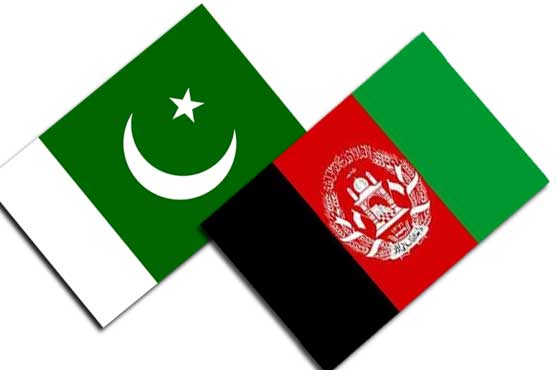
ISLAMABAD – In a significant development Islamabad and Kabul have agreed in principle to work towards setting up a ‘border commission’ with a common objective of enhancing border controls to curb militant activity.
This key understanding to secure the porous Pak-Afghan border was reached between the two sides during Prime Minister Nawaz Sharif’s visit to Kabul last week.
The modalities and contours of the proposed commission will be worked out at the level of the Interior ministries of the two countries soon, it is learnt. A senior representative of the Afghan Interior ministry will be travelling to Pakistan next week for deliberations with his Pakistani counterpart on the proposed Commission, according to informed sources here.
The two sides will explore various viable options to improve border controls and monitor movement through a better management command, particularly for travel documentation. It is believed that Pakistan’s ambassador to Afghanistan, Mohammad Sadiq, in consultation with the PM’s top foreign policy aides has prepared a roadmap for the proposed commission to strengthen the existing border monitoring mechanism.
“The objective of the proposed Border Commission would essentially be to promote documented travel and to ensure legal entries,” a source privy to this development told The Nation on Monday.
Kabul had initially resisted this proposal when tabled by Islamabad sometime back. However, when the Prime Minister raised the matter with the Afghan President last week he finally gave the green light for opening discussions on it at the highest official level. With Pakistan’s proactive support and cooperation in the political reconciliation efforts in Afghanistan, Kabul is beginning to appreciate Islamabad’s legitimate border management concerns. Clearly, administration in Kabul now recognizes that it merits immediate attention and would be a win-win for both the countries.
For years Islamabad has advocated at the official, diplomatic and political level a proper border management command to secure it against destabilising elements.
Pakistan believes that border mismanagement is the fundamental bilateral issue that must be addressed. It is seen as the root cause of rising militancy and key to stabilising the volatile border situation.
Pakistan shares a 2,500 KM border with Afghanistan and according to the official figure 56,000 people cross the border every day. However, more than 90 per cent of the movement is from the Afghan side to Pakistan which is host to over 3 million Afghan refugees. While there are 1.7 million registered Afghan refugees in Pakistan, the number of illegal Afghans in the country is estimated at over 1.3 million. The issue is therefore crucial for Pakistan to end infiltration from the Afghan side.
For Islamabad it remains a high priority to evolve an effective mechanism with Kabul to check the illegal cross border movement and enforce stricter controls to discourage all militant and criminal activity.
With the approaching drawdown of US-led NATO forces from Afghanistan by end 2014, it is an overriding concern for Pakistan which again faces the uneasy prospect of 3 million more Afghan refugees pouring into the country.
Source: The Nation








